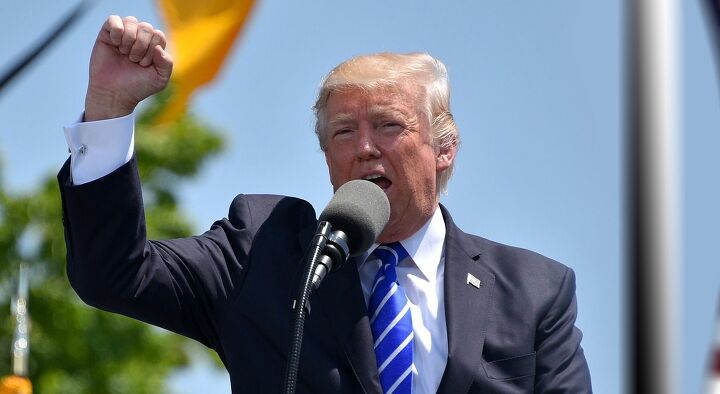Trump Proposes Making Vehicle Loan Interest Tax Deductible

Donald Trump announced a new economic proposal just two weeks before the upcoming election, aimed at winning over voters—particularly those in the automotive and manufacturing sectors.
During a rally in North Carolina, Trump pledged to make interest on car loans fully tax-deductible, but with a key caveat: the cars must be built in the United States.
Reuters reports this proposal is part of Trump's broader strategy to appeal to autoworkers and discourage the influx of Chinese-made vehicles into the U.S. market. By tying the tax deduction to domestically produced vehicles, Trump aims to boost American manufacturing, a major focus of his economic policy.
On the surface, this sounds like a big win for everyone who has a car loan. But as with anything tax-related, the details are where things get tricky, and not everyone would come out ahead.
The idea, similar to the existing mortgage interest deduction, would allow car owners to write off the interest they pay on their auto loans. However, as with the mortgage interest deduction, the benefits of this plan are expected to disproportionately favor wealthier individuals.
This is because only taxpayers who itemize deductions, a small portion of the overall tax-paying population, would be able to take advantage of it. Experts point out that most lower-income taxpayers, who tend to claim the standard deduction, wouldn't benefit from the policy. Furthermore, wealthier households would see a larger tax benefit because the value of the deduction scales with income.
Auto loan interest currently accounts for a significant portion of consumer debt in the U.S., with Americans owing over $1.63 trillion in auto loans. Trump’s proposal would effectively let car buyers write off interest payments on their vehicle loans, potentially saving them hundreds of dollars a year.
The proposal, while popular among some voters, faces significant hurdles. Any changes to the tax code would require Congressional approval, and CNBC suggests it could cost the federal government around $5 billion annually in lost revenue.
Become a TTAC insider. Get the latest news, features, TTAC takes, and everything else that gets to the truth about cars first by subscribing to our newsletter.

An experienced automotive storyteller known for engaging and insightful content. Michael also brings a wealth of technical knowledge and experience having been part of the Ford GT program at Multimatic and built cars that raced in TCR, IMSA, and IndyCar.
More by Michael Accardi
Latest Car Reviews
Read moreLatest Product Reviews
Read moreRecent Comments
- Ajla IMO, something like this really should be naturally-aspirated.
- Kjhkjlhkjhkljh kljhjkhjklhkjh Unless they are solid state batteries you BAN THEM. I like EVs... but EVs like to burn ... for days
- Kjhkjlhkjhkljh kljhjkhjklhkjh uh .. it looks like a VW golf got the mumps
- Kjhkjlhkjhkljh kljhjkhjklhkjh I CANNOT WAIT FOR SOCIAL SECURITY TO GET GUTTED.. No i am really serious. I am insulated thanks to 24 years at Symantec then Broadcom .. tons of retirement cash. but all the blue hairs and low income trump voters are going to lose benefits and jobs and i get to laugh allllll dayyyyy long in about 2-3 years.. CANNOT WAIT, POPCORN READY.
- Kjhkjlhkjhkljh kljhjkhjklhkjh no. to many '''''americans'''' just want a CUV or SUV according to sales numbers




































Comments
Join the conversation